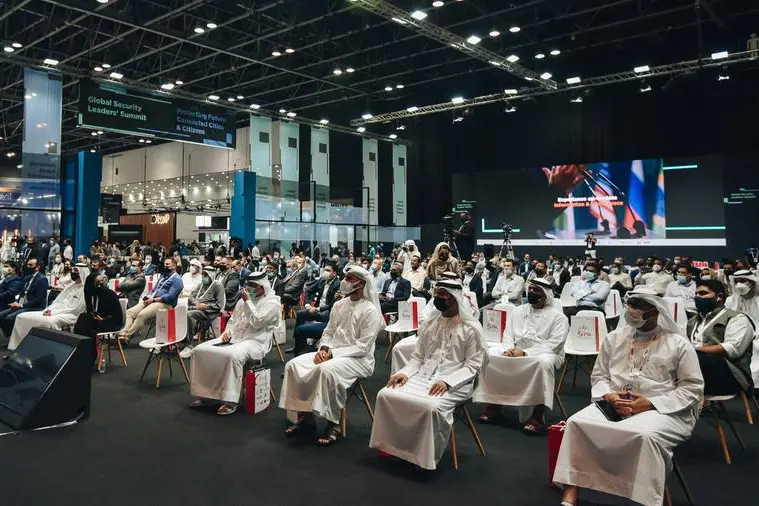Dubai, a global hub for business and innovation, recently hosted an important summit focused on combating financial crimes. The event, which brought together top leaders, experts, and policymakers from across the world, highlighted the growing need for stronger global cooperation to fight illicit financial activities.
In recent years, financial crimes have become more sophisticated and harder to detect. With the rise of technology, criminals are finding new ways to hide their activities and move money across borders. This has led to an increase in illegal financial activities such as money laundering, fraud, and terrorism financing. The summit was a step towards addressing these challenges and finding innovative solutions to protect financial systems globally.
The event was attended by high-ranking officials from financial institutions, law enforcement agencies, and government bodies. Representatives from international organizations such as the United Nations and the World Bank also participated in discussions. The summit’s goal was to foster collaboration among different sectors to create a unified approach to fighting financial crimes.

Strengthening Regulations and Cooperation
One of the main themes discussed during the summit was the need for stronger regulations and enforcement measures to curb financial crimes. Financial crimes often involve complex networks that span multiple countries, making it difficult for law enforcement to track and apprehend criminals. Experts at the summit emphasized the importance of cross-border cooperation between governments, financial institutions, and international organizations.
“We need to build a system where countries work together seamlessly to tackle financial crimes,” said one of the summit’s key speakers, a senior official from the UAE’s Ministry of Finance. “By sharing information and resources, we can create a more transparent global financial system.”

During the discussions, participants stressed the need for financial institutions to adopt more advanced technologies, such as artificial intelligence and blockchain, to identify suspicious transactions. These technologies can help detect patterns that would otherwise go unnoticed and make it easier to trace illicit financial flows. The use of these tools could also help speed up investigations and reduce the risk of financial crimes slipping through the cracks.
Tackling Money Laundering

Money laundering is one of the most common financial crimes, and it was a key topic at the summit. Criminals often use complex schemes to disguise the illegal origins of their money, making it appear as though the funds come from legitimate sources. This poses a significant challenge to financial institutions, which must ensure that they do not unknowingly facilitate money laundering.
To combat this, experts at the summit called for more stringent anti-money laundering (AML) regulations. They also highlighted the importance of effective Know Your Customer (KYC) practices, which require banks and other financial institutions to verify the identities of their clients. Strengthening KYC protocols can help prevent criminals from opening accounts under false identities and moving illicit funds through the financial system.
“AML regulations need to evolve with the times,” said a senior representative from the International Monetary Fund (IMF). “We must ensure that financial institutions have the tools and knowledge they need to spot money laundering activities before they become a bigger problem.”
The Role of Technology in Fighting Financial Crimes
Another key takeaway from the summit was the role of technology in combating financial crimes. In an increasingly digital world, financial crimes are not limited to traditional methods such as bribery or embezzlement. Cybercriminals are now using advanced technology to carry out fraudulent activities, including hacking into financial systems and stealing sensitive data.
To address these new challenges, summit participants discussed the need for stronger cybersecurity measures in the financial sector. This includes better protection against data breaches, more secure online payment systems, and enhanced monitoring of digital transactions. Experts also discussed the potential of blockchain technology, which can provide a transparent and immutable record of transactions, making it harder for criminals to hide their activities.
“Technology is both a tool for criminals and a tool for law enforcement,” said one of the speakers, a cybersecurity expert. “We must stay ahead of the criminals by using the latest technologies to safeguard our financial systems.”
International Collaboration is Key
The summit also underscored the importance of international collaboration in fighting financial crimes. While many countries have laws in place to prevent financial crimes, these laws are often not enough to address the global nature of the problem. Criminals can move money across borders easily, making it difficult for any one country to take effective action on its own.

By working together, countries can share information and resources, making it easier to track down and stop criminals. International organizations such as the Financial Action Task Force (FATF) play a crucial role in setting global standards for fighting financial crimes and helping countries implement those standards.
“Financial crimes do not respect borders,” said a representative from the UAE’s Central Bank. “That’s why international cooperation is crucial. No country can fight this battle alone.”
Looking to the Future
As the summit concluded, participants agreed that while significant progress has been made in the fight against financial crimes, much work remains to be done. They pledged to continue collaborating, sharing information, and developing new strategies to stay ahead of the criminals. With financial crimes evolving rapidly, it is clear that the fight is ongoing, and the global community must remain vigilant.
Dubai’s role as a leading financial center was highlighted throughout the summit. As the city continues to attract businesses and investors from around the world, it is also stepping up its efforts to ensure a safe and transparent financial environment. The UAE’s commitment to tackling financial crimes was evident in the high level of participation from government officials and financial institutions at the summit.
Looking ahead, Dubai aims to become a global leader in the fight against financial crimes by embracing innovative technologies and fostering international cooperation. The summit was just one step in a larger effort to create a secure and transparent financial system for everyone.
In conclusion, the Dubai summit on fighting financial crimes provided a valuable platform for global leaders to come together and discuss strategies for combating illicit financial activities. By strengthening regulations, adopting new technologies, and enhancing international cooperation, the world is one step closer to eradicating financial crimes and creating a more secure global financial system.
Also read: Dubai Medical University Celebrates 40 Years of Excellence














